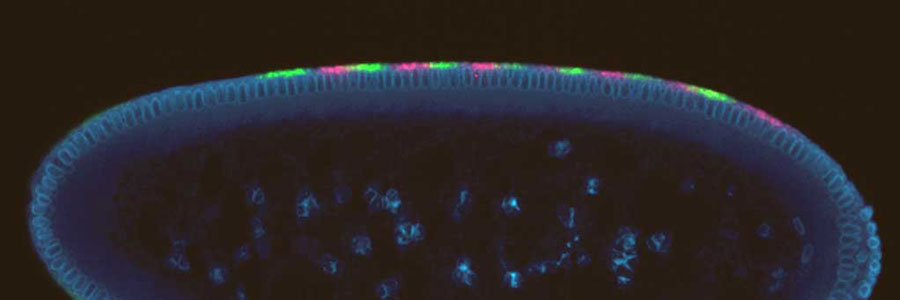Microtubule motors organise cells by powering the movement of organelles, vesicles and macromolecules through the cytoplasm. This process is essential for numerous biological events, ranging from embryonic patterning to synaptic transmission. Elucidating how motor complexes operate is not just valuable for understanding fundamental cell biology. There is also clear disease relevance – impaired cargo transport is increasingly implicated in neurodegenerative disorders and infection by pathogenic viruses depends on their exploitation of microtubule motors.
Our goals are to understand how motors recognise their diverse cargoes, how movement of motor complexes is regulated, and the links between defective transport processes and human diseases. We have a long-standing interest in mRNA trafficking within the cytoplasm, a process that plays critical roles in the spatial control of protein function in many cell types.
We combine single-molecule analysis of reconstituted transport complexes in vitro with mechanistic dissection in human cells and Drosophila using genetics and advanced imaging. We also collaborate with Andrew Carter (LMB Structural Studies) to gain structural insights into transport mechanisms.
Future goals include:
 To isolate novel components of cargo transport complexes and characterise their functions in microtubule-based transport processes.
To isolate novel components of cargo transport complexes and characterise their functions in microtubule-based transport processes.
 To understand how opposite polarity motors operate on a single cargo during polarised sorting and why this seemingly inefficient mechanism of transport has been selected for during evolution.
To understand how opposite polarity motors operate on a single cargo during polarised sorting and why this seemingly inefficient mechanism of transport has been selected for during evolution.
 To elucidate the structural basis of cargo recognition and how a model motor:cargo complex is assembled.
To elucidate the structural basis of cargo recognition and how a model motor:cargo complex is assembled.
 To understand how the assembly and disassembly of cargo-transport complexes is regulated in time and space within cells, including by external stimuli such as stress.
To understand how the assembly and disassembly of cargo-transport complexes is regulated in time and space within cells, including by external stimuli such as stress.
 To determine how mRNA transport is co-ordinated with translation to precisely control gene expression.
To determine how mRNA transport is co-ordinated with translation to precisely control gene expression.
